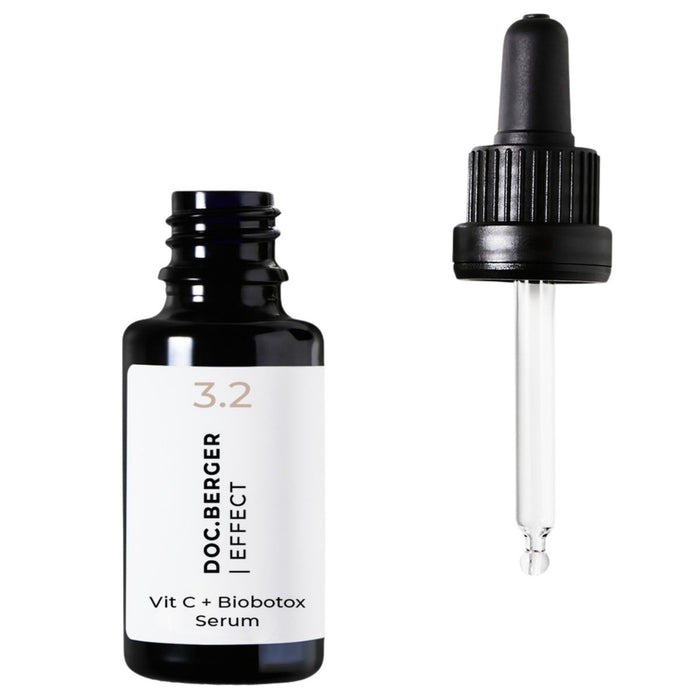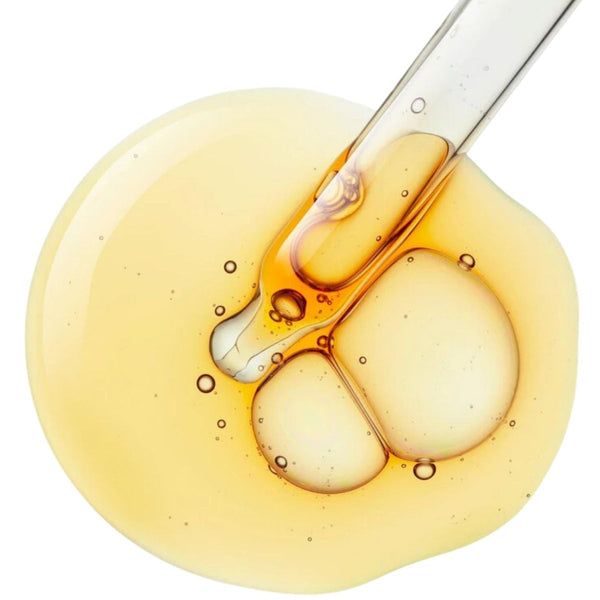WHAT IS VITAMIN C?
Vitamin C, also known as ascorbic acid, is an essential, water-soluble vitamin that plays a key role in numerous bodily functions, including the health of our skin. As an essential vitamin, the human body cannot produce vitamin C on its own, which is why regular intake through food or supplements is necessary.
Vitamin C is crucial for the synthesis of collagen, an important protein that gives the skin structure and firmness. A deficiency in vitamin C can have negative effects on the skin, resulting in a dull, sagging appearance. Fortunately, the topical application of vitamin C in skincare products such as creams and serums provides a direct way to supply the skin with this vital nutrient.
The effect of vitamin C on the skin is diverse and includes not only supporting collagen production but also protecting against oxidative stress and improving skin appearance.
EFFECTS OF VITAMIN C IN SKINCARE
Vitamin C, known for its versatile skincare properties, is a valuable component in the skincare routine for different skin types. It offers a wide range of benefits, from regulating sebum production in oily skin to promoting collagen synthesis in mature skin. Vitamin C is a true all-rounder in skincare, adapting to the specific needs of each skin type.
ANTIOXIDANT POWER OF VITAMIN C
Vitamin C, as a potent antioxidant, effectively protects the skin against free radicals generated by environmental factors such as UV radiation, air pollution, and smoking. These free radicals are responsible for oxidative damage that can lead to premature skin aging. By neutralizing these harmful molecules, vitamin C helps keep the skin healthy and youthful.
PROMOTION OF COLLAGEN PRODUCTION
One of the outstanding features of vitamin C is its role in collagen synthesis. Collagen is an essential protein that provides structure and firmness to the skin. With age, natural collagen production decreases, leading to wrinkles and sagging skin. Vitamin C stimulates collagen production, improves skin elasticity, and reduces the appearance of fine lines and wrinkles.
ANTI-INFLAMMATORY PROPERTIES FOR ACNE AND IMPURITIES
Vitamin C is known for its anti-inflammatory properties, which are particularly beneficial for skin issues such as acne and impurities. It calms the skin, reduces redness, and accelerates the healing of acne spots, resulting in a clearer and healthier skin.
BRIGHTENING EFFECT ON PIGMENT SPOTS
Vitamin C can regulate melanin production in the skin, contributing to the reduction of pigment and sunspots. It prevents the formation of new pigmentation and promotes a more even skin tone.
PROTECTION AGAINST SUN DAMAGE
Although vitamin C does not provide UV protection, it can shield the skin from the harmful effects of sun exposure. It repairs damage caused by UV rays and prevents sunburn and photo-induced skin aging.
ACCELERATION OF WOUND HEALING
Vitamin C plays a significant role in wound healing. It accelerates the healing process of minor cuts, scrapes, and other skin injuries. This is particularly useful in reducing the risk of scar formation.
Overall, vitamin C is an essential component in skincare that not only protects and repairs the skin, but also promotes its natural beauty and health.











